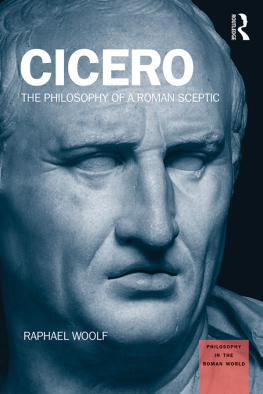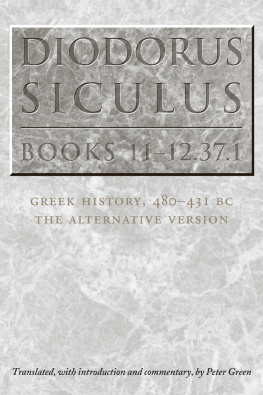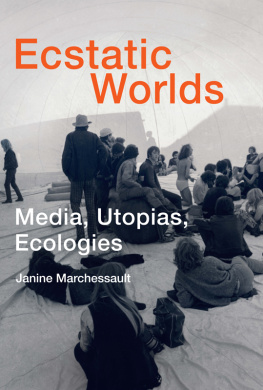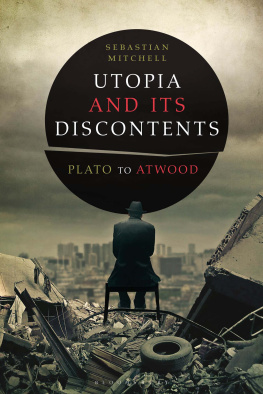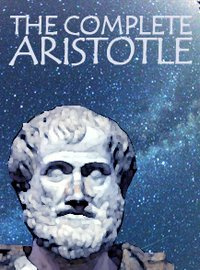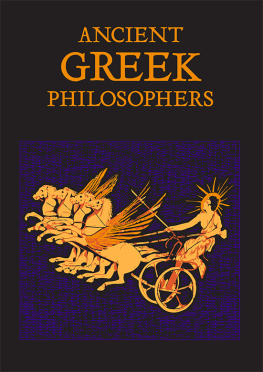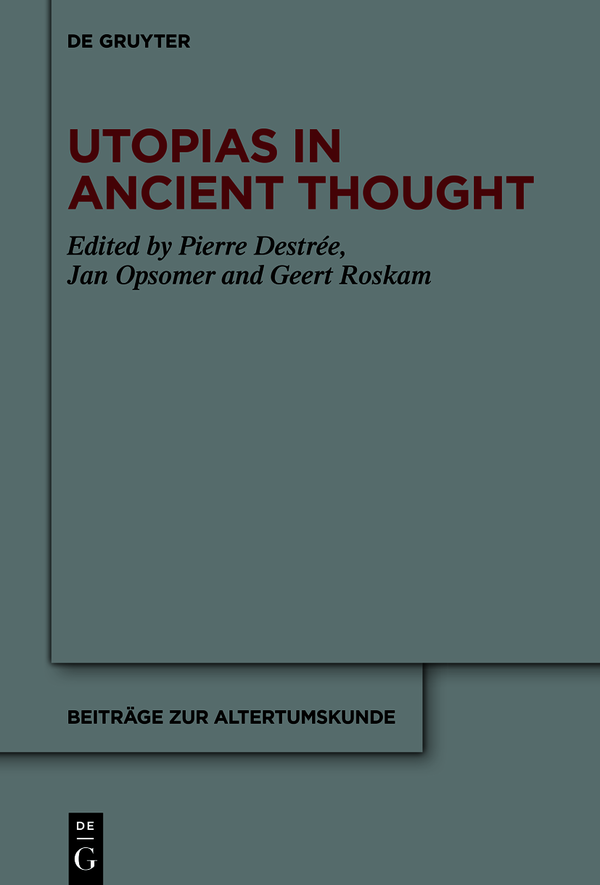Beitrge zur Altertumskunde
Edited by
Susanne Daub
Michael Erler
Dorothee Gall
Ludwig Koenen
Clemens Zintzen
Ernst Heitsch
Reinhold Merkelbach
Volume
ISBN 9783110738209
e-ISBN (PDF) 9783110733129
e-ISBN (EPUB) 9783110733419
Bibliographic information published by the Deutsche Nationalbibliothek
The Deutsche Nationalbibliothek lists this publication in the Deutsche Nationalbibliografie; detailed bibliographic data are available on the Internet at http://dnb.dnb.de.
2021 Walter de Gruyter GmbH, Berlin/Boston
The quest for the best. Praise, blame, utopia
Giulia Sissa
A utopia can be defined as a piece of fiction that creates a parallel universe. This is often the infinitely detailed representation of an imaginary society that a text (or a painting, or an architectural drawing) projects as already existing, in some place or time. Such a society will have to be exceptional, but entirely possible; difficult to discover, but now well known; arduous to emulate, and yet exemplary. It will have to be perfect in every way: complete and excellent, just, happy and stable. From this first definition, we may be tempted to generate a very long narrative. It would be a history of the Western collective aspiration to the ultimate good, summum bonum, beginning with mythological dreams about the past, whether the Golden Age, the state of nature or the Kingdom of Saturn.
This, however, might fail to capture the political significance of the utopian tradition. If we want to understand the distinctive intent of a utopian fiction, we should start from Thomas Mores dialogue on The best state of a commonwealth and on the new island utopia (De optimo rei publicae statu, deque nova insula utopia), where the word itself was coined as a pun meaning no-place (ou-topos). In response to the question of what would be a truly happy and just res publica an optimal state nowhere to be found in the European, Christian world a bizarre character called Raphael Hythlodaeus, whose surname means Idel-Talk, launches into the unexpected praise of people discovered on a picturesque new island in the Atlantic Ocean. Utopia was published in 1516 in Louvain, and in 1518 in Basel; it became an instant best-seller, was translated into several vernacular languages and set the standards of a genre of political theory what we have come to identify as the utopian tradition.
Firstly, a proper utopia represents a society whose absolute happiness depends on factors such as a mode of production, a form of government, an administration, institutions, laws, customs and manners, sexual morality, and, often, a dress code, or a diet. This complex, all-inclusive, meticulous assemblage of features is precisely what More depicts in Utopia. And the fastidiousness of the description conveys the spirit of the utopian project: an exemplary society has to be picture-perfect in all its particulars. It is these visions, as grandiose as they are detailed, that we should call utopias, lest any allusion to some dreamlike form of wellbeing, such as a tableau of alimentary profusion or a scene of pastoral bliss, can fall into the same category. There is a profound difference between such basic reveries, although under the reign of an archaic god, and a political fantasy that transcends mere nostalgia for a carefree lifestyle full of automatic food. We should agree with Raymond Trousson, when he offers a much more demanding definition of utopia:
Je proposerai donc ici de parler d'utopie lorsque, dans le cadre d'un rcit (ce qui exclut les traits politiques), se trouve dcrite une communaut (ce qui exclut la robinsonnade), organise selon certains principes politiques, conomiques, thiques, restituant la complexit de l'existence sociale (ce qui exclut le monde l'envers, l'ge d'or, Cocagne ou l'Arcadie), qu'elle soit prsente comme idal raliser (utopie positive) ou comme la prvision d'un enfer (l'anti-utopie), qu'elle soit situe dans un espace rel, imaginaire ou encore dans le temps, qu'elle soit enfin dcrite au terme d'un voyage imaginaire vraisemblable ou non.
Secondly, we have to go beyond the content of this kind of fiction. We must pay attention to the form of their expression, and to the circumstances of their utterance. What is said matters, of course, but so too does how, when, where, and for whom the message is produced. Utopian thinking/speaking uses a particular mode of discourse: praise. A utopia is not just an excellent state of which I sketch the contours, but a state that I extol in a rapturous panegyric, and that I invite you, ipso facto, to contemplate with delight, and in awe. I do not provide plain information; I execute a dramatic speech act. More precisely I perform what ancient rhetoric classifies as display, showing-off, demonstrative, epideictic speaking. The utopian imagination makes states that are, literally, admirable ready-made to be admired. Utopia is praise. When Raphal Hythlodaeus extols the Utopians in Mores Utopia, he does exactly that: he utters a passionate, appreciative declamation.
Thirdly, we have to explain why utopian thinking / speaking was born not in any old place, but in democratic Athens. Thomas Mores Utopia is meant to be a remake of the Republic. And even before Platos invention of Kallipolis, a City of Beauty that is nowhere to be found on earth, Aristophanes had brought onto the stage Nephelococcygia, a novel polis, already located up in the sky. The praise an ancient utopia performs, I will argue, responds to a crucial feature of Athenian political culture: the constant eulogy of the People by the People, i.e. self-praise. The first utopias, Nephelococcygia and Kallipolis, rebound on the attribution of excellence to Athens, by Athenian speakers and among an audience made up of Athenian citizens. These parallel worlds are actually a hypothetical self-contained reality that co-exists with Athens, in Athens. They are meant to outwit this particular polis. This is not a matter of geographical localization, but of political culture: it is the beloved, and endlessly eulogized government by the Athenian people, that these dissenting Athenians challenge in their own words.
And here, again, Thomas More creates a similar dialectic: by heaping admiration on a nova insula, Raphael Hythlodaeus shows that Christian Europe is not only flawed, but immensely vain. The backdrop is a world where the merger of the classical tradition and Christianity is supposed to grant the highest standards. But your justice, Raphael claims, is nothing but a futile boast (frustra iactetis exercitam), a righteousness more specious than fair or expedient (speciosam magis quam aut iustam aut utilem). Should he give advice to a prince, he would expose precisely that phony showing off.
Fourthly, we have to focus on the theatrical situation. Utopia was born not merely in a certain polis, but in a distinct culture. Democracy, as Alexis de Tocqueville rightly argued about its modern instantiation, changes what it does not create. In antiquity, popular rule was first and foremost a form of government, consisting of institutions, practices and rituals, but it enacted and generated ideas and ideals, discourses and self-representations. Public speaking was vital in the collective deliberations in the assembly and the Council, in the trials held in the law-courts and in official occasions like state funerals. Democratic political culture was vocal, eloquent, and, more to the point, it was immensely and institutionally boastful. Athenian speakers were happy to repeat that democracy was not merely their own political form, but the very best one. There was a public venue, however, where a codified, dramatic discourse broadcasted that all this self-glorification was just ridiculous: the theatre. Utopian speaking/thinking was invented in these unique circumstances: the comic theatre. Utopia was born in jest.




